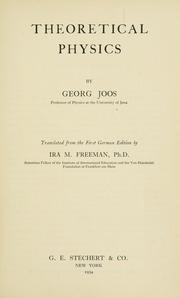


For most programmes Part 1 requires you to study 120 credits spread over at least three modules which, depending upon your programme, will be drawn from one, two or three different academic subjects. We divide academic study into two sections - Part 1 (Year 1) and Part 2 (Year 2, 3 and sometimes 4). Further guidance on admission to the University, including other qualifications that we accept, frequently asked questions and information on applying, can be found on our general admissions webpages.Ĭontact Admissions Team + 44 (0) 1524 592028 or via University offers a range of programmes, some of which follow a structured study programme, and others which offer the chance for you to devise a more flexible programme to complement your main specialism. We welcome applications from students with a range of alternative UK and international qualifications, including combinations of qualification. International Baccalaureate 36 points overall with 16 points from the best 3 Higher Level subjects including 6 in Mathematics HL and Physics HLīTEC May be considered alongside A level Mathematics and A level Physics. Interviews Applicants may be interviewed before being made an offer. For other English language qualifications we accept, please see our English language requirements webpages. IELTS 6.0 overall with at least 5.5 in each component. Required Subjects A level Mathematics grade A and A level Physics grade A You will have ample opportunities to further enhance your CV, for example, acting as a student ambassador, taking part in outreach activities, or by joining student societies and participating in the University’s Lancaster Award. You will benefit from our direct links with industry and outside agencies, which contribute to the range of our third and fourth year projects and fund departmental research. InternshipsĮach year we offer a number of internships for our students, which will give you relevant work experience and the opportunity to apply your academic knowledge in real-world situations. This is designed to help you achieve the career you want and prepare you for your future. Our dedicated Employability Champion provides individual support, organises trips to careers fairs and runs the Employability Booster programme.

Our degree schemes will develop your transferable skills such as critical thinking, problem-solving, numeracy, computational skills, communication skills, and team working, which are all highly valued by both employers and academia.
Theoretical physics full#
Visit our Employability section for full details. We are unique in that every student is eligible to participate in The Lancaster Award which offers you the opportunity to complete key activities such as work experience, employability/career development, campus community and social development. Lancaster University is dedicated to ensuring you not only gain a highly reputable degree, you also graduate with the relevant life and work based skills. Examples include consulting, finance, computer programming, and accountancy, as well as managerial and administrative positions. Our students also find employment in careers where they are valued because of general skills gained during the course such as logical thinking, problem solving, numeracy and computer literacy. A substantial number of our graduates continue on to postgraduate education, or enter employment that directly relies on their specialist skills. Applications of the subject range from the very pure to the very practical, and a physics degree opens up a wide range of rewarding careers in scientific research and technological development, as well as in a variety of other professions. Physics is an exciting subject that is fundamental to the developments in modern society. Project work is carried out in both your second and third years. You also have a choice of modules such as Quantum Information and The Early Universe. In addition, in Years 2 and 3 you take specialised modules covering topics such as classical fields, gravitation and cosmology, and particle physics. The core curriculum includes subjects such as quantum physics and electromagnetism in your first year, quantum mechanics and relativity in your second year, and particle physics, atomic physics and condensed matter physics in your third year. Theoretical physicists devote themselves to uncovering the most appropriate mathematical laws for deducing the essence of physical phenomena on all scales, from the quantum world of microscopic matter and nanomaterials to the geometry of curved space-time and the large-scale structure of the cosmos. Quite possibly the most astonishing aspect of the world around us is that so much of it can be understood by using a relatively small number of physical laws.


 0 kommentar(er)
0 kommentar(er)
